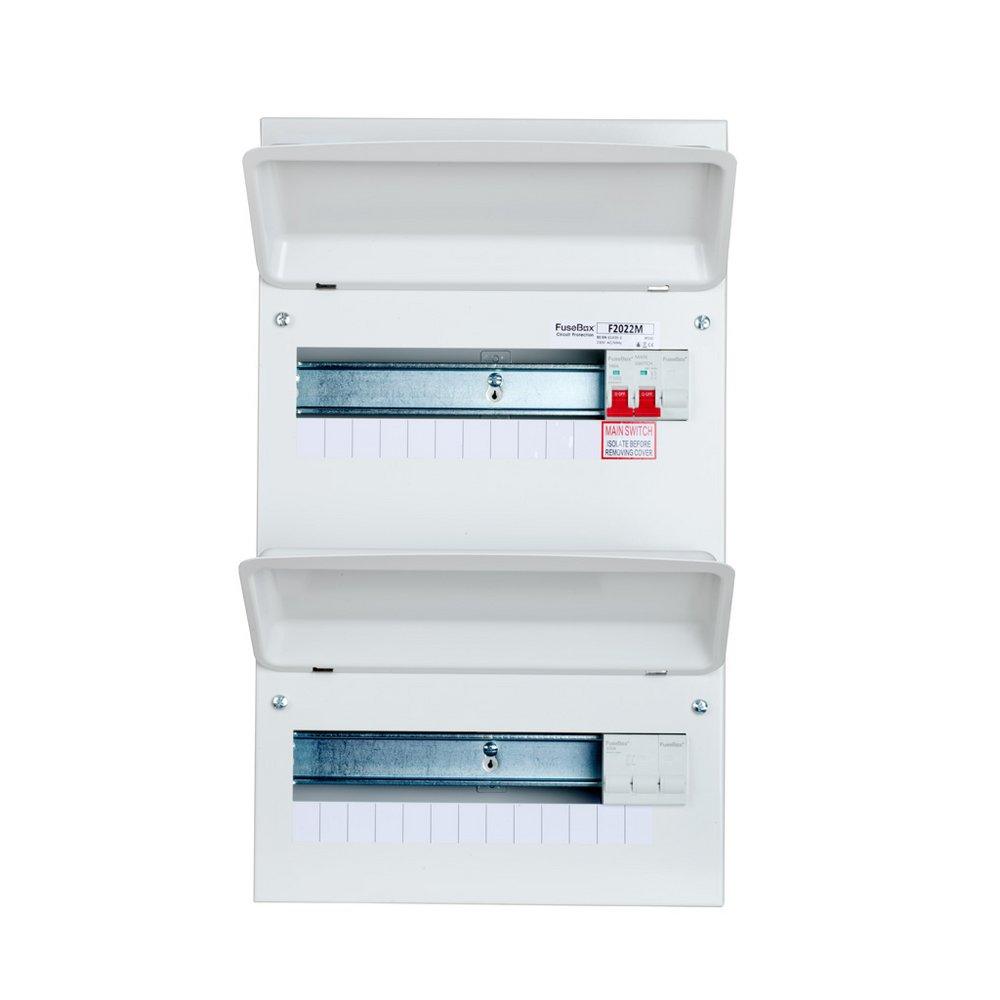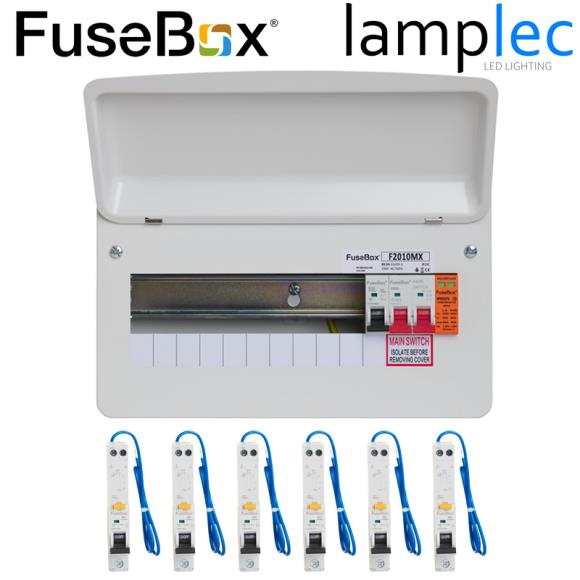A Comprehensive Guide to Preserving Your RCBO CONSUMER UNITS Successfully
A Comprehensive Guide to Preserving Your RCBO CONSUMER UNITS Successfully
Blog Article
The Duty of Customer Devices in Reliable Energy Administration Equipment
Consumer systems are integral to effective energy administration systems, serving as the primary circulation points for electrical power within frameworks. The arrival of clever modern technologies has even more enhanced their capability, enabling for real-time data surveillance and nuanced power consumption evaluation.
Recognizing Customer Systems

Comprehending the duty of customer systems begins with identifying their essential function in protecting electric systems. By isolating faults within particular circuits, consumer devices stop extensive outages and possible fire dangers. This isolation is attained with the use of circuit breakers that journey or merges that blow when a mistake is identified, thereby removing the electric flow to the affected circuit.
Moreover, customer systems facilitate the orderly distribution of power, boosting the efficiency of power usage. They enable the methodical management of electric loads, which can be specifically essential in business and industrial setups where demand can vary considerably. Correctly conserved customer units add to the longevity of electric systems and assist in minimizing downtime caused by electrical failures, inevitably supporting the smooth operation of energy-dependent facilities.
Smart Technologies Combination

An essential benefit of smart customer devices is their capacity to take advantage of advanced algorithms and artificial intelligence for anticipating analytics. This permits for preemptive adjustments based upon usage patterns, weather prediction, and other variables, dramatically boosting total effectiveness. Wise customer units help with demand response programs, where power usage can be dynamically adjusted throughout peak durations to support the grid and reduce prices.
The assimilation of eco-friendly power resources, such as solar and wind, is likewise structured through clever customer devices. By smartly taking care of the intermittency of these sources, these units ensure a well balanced and trusted power supply. Furthermore, clever consumer systems enhance individual engagement by giving in-depth insights and remote capacities through mobile applications, promoting a much more proactive technique to energy conservation and sustainability.
Surveillance Power Usage
Building on the abilities of clever innovations assimilation, monitoring power usage ends up being a crucial emphasis within energy administration systems. Efficient tracking works as the structure for identifying energy inefficiencies and applying rehabilitative measures. By leveraging advanced metering facilities (AMI), real-time data on energy usage can be accumulated at granular levels, supplying valuable understandings right into intake patterns and peak need durations. This data-centric approach allows both customers and power supervisors to make enlightened choices intended at reducing waste and improving general effectiveness.
Smart meters and Web of Things (IoT) tools play a critical role in this tracking procedure. These gadgets can track energy usage in real-time, sending information to central systems for analysis. The gathered information is then refined through innovative formulas to discover abnormalities, anticipate future consumption, and suggest optimization techniques. Furthermore, cloud-based solutions use scalable platforms for saving and examining big datasets, facilitating remote monitoring and control.
The assimilation of these technologies not just encourages customers with comprehensive information websites regarding their power use yet also sustains utility carriers in taking care of load distribution better. Inevitably, exact and constant monitoring is crucial for attaining power performance, price savings, and sustainability goals within power management systems.
Optimizing Device Usage

One effective approach entails recognizing height and off-peak hours to move energy-intensive activities, such as laundry or dishwashing, to times when energy need is reduced. This not only reduces strain on the grid but additionally profits from reduced power tolls. Furthermore, integrating artificial intelligence algorithms permits anticipating maintenance, guaranteeing appliances run at optimum performance and extending their life expectancy.
Energy management systems can also integrate user-specific preferences and habits to tailor appliance usage routines. As an example, clever illumination systems can adjust illumination based upon occupancy and natural light accessibility, while heating and cooling moved here systems can maintain convenience levels without extreme energy use.
Supporting Sustainability
Promoting sustainability within energy monitoring systems includes not just enhancing effectiveness yet also promoting eco responsible techniques. Consumer systems are indispensable to this process, as they give real-time data and control systems that enable customers to monitor and lower their power intake. By leveraging advanced innovations, customer units can determine energy-saving possibilities and facilitate the combination of eco-friendly energy resources like solar and wind power.
One crucial element of advertising sustainability is enlightening see this customers on the benefits of responsible energy use. Via comprehensive insights supplied by customer units, individuals can make informed decisions that decrease their carbon impact. For circumstances, these systems can suggest ideal times for running high-energy home appliances based upon grid need and renewable power accessibility, therefore reducing reliance on fossil gas.
Moreover, consumer systems support the adoption of clever grid modern technologies, which boost the total performance and integrity of power distribution. By allowing two-way interaction between consumers and energy providers, these systems can dynamically adjust to power needs, minimizing waste and advertising the usage of sustainable energy practices.
Conclusion
Customer devices, as indispensable parts of power administration systems, dramatically boost electric safety and efficiency within buildings with circuit protection and smart technology integration. Real-time information surveillance and evaluation facilitated by these units optimize power usage and home appliance use. Additionally, the consolidation of renewable resource resources advertises sustainable practices, adding to decreased overall energy consumption and reduced carbon impacts. Customer devices play an important duty in advancing both energy performance and environmental sustainability.
Developments in smart innovations have actually transformed the capacities of energy management systems, especially via the integration of clever consumer units.Structure on the capacities of wise modern technologies integration, keeping track of energy usage ends up being an important emphasis within power administration systems.Efficient appliance usage optimization is an important part of power monitoring systems, intending to improve efficiency and reduce unnecessary energy intake.Customer systems, as important elements of energy management systems, significantly enhance electric security and effectiveness within buildings through circuit protection and smart technology integration. Additionally, the incorporation of sustainable energy sources promotes lasting practices, contributing to reduced general energy intake and lower carbon footprints.
Report this page